Chess is more than just a game. It’s like a school for your brain. It teaches kids (and even grown-ups) how to think better, stay calm, and make smart choices. Now, if you live in Muharraq, Bahrain, and you want to learn chess the right way, you’re in luck. There are many places where you can start. But not all of them are the same.
Online Chess Training
Learning chess online has changed everything. No more waiting for a weekend class or driving through traffic. With a good internet connection, your chess coach is right there on your screen, ready to teach. It’s like bringing a grandmaster into your living room.
Online chess lessons are not just about convenience. They are smarter, faster, and often better than in-person ones. Let’s look at why.
Landscape of Chess Training in Muharraq, Bahrain and Why Online Chess Training is the Right Choice
In Muharraq, you can find some good local coaches and clubs. They usually gather in community centers, small classrooms, or even homes. The passion is real, but most local setups have some big problems.
First, there’s no clear plan. One coach teaches a certain way. Another coach teaches something different. That can confuse students. Most offline classes don’t follow a real curriculum. That means you might learn random things, but never fully understand how to think like a chess player.
Second, many offline classes have too many students and too little time. You get maybe 10 minutes of attention. That’s not enough to grow.
That’s where online chess training shines.
Online training is built differently. It follows a step-by-step plan, just like school. You start with basics. Then you move to tactics, openings, and endgames. Every student gets personal feedback. You don’t just play—you learn why you played what you played. That’s how champions are made.
With online lessons, you also meet kids from around the world. You’re not stuck with the same two players every week. You get real practice, real challenge, and real growth.
So, if you live in Muharraq, why settle for a classroom that may not give you the best? With online chess, you get access to the world’s best coaches, tools, and tournaments—all from home.
How Global School of Chess is The Best Choice When It Comes to Chess Training in Muharraq
Let’s talk about the champion in this space—Global School of Chess.
If you’re in Muharraq and you’re serious about learning chess the right way, this is where your journey should begin. Why? Because it’s not just another online school. It’s a family of world-class coaches, smart students, and an amazing curriculum.
At Global School of Chess, every student gets personal attention. You’re not lost in a big group. You get a plan that fits your level, your speed, and your goals. Whether you’re a beginner who doesn’t know what a knight does, or an advanced player aiming for FIDE titles, they’ve got you covered.
The classes are live and interactive. That means students can ask questions, solve puzzles together, and play real games with coach feedback. It’s not a video you watch and forget. It’s real learning, with real improvement.
They also run online tournaments every two weeks. This gives students a safe, fun space to try what they’ve learned. You don’t just learn—you compete and grow.
More than chess, the Global School of Chess teaches life skills. Focus. Patience. Decision-making. Confidence. These skills help students do better not just in games, but also in school and life.
And the best part? You can try a class for free. Just visit Global School of Chess – Free Trial Class and book a spot.
In the world of online chess learning, Global School of Chess is not just a choice—it’s the best choice.
Offline Chess Training
Let’s now look at what offline chess training looks like, especially in a place like Muharraq, Bahrain.
Offline training means you physically go to a class or club. You sit across from your coach. You use a real chessboard. It can feel nice. You get to meet people face-to-face, shake hands before a match, and maybe have a little chat after.
In Muharraq, you’ll find a few local chess clubs and centers where this kind of training happens. Usually, they operate in the evenings or on weekends. Some are part of sports clubs. Others are small private setups run by passionate chess lovers.
You might find a coach who’s very friendly and helpful. And yes, for some beginners, just playing over a board can be exciting. The hands-on approach of using a physical chessboard does help with remembering piece movements for absolute beginners.
However, that’s where the benefits mostly stop.
Many offline classes in Muharraq are not built with a strong structure. They don’t always follow a plan. Sometimes, the coach decides what to teach that day based on how the class goes. That can lead to a very uneven learning path.
Often, too many kids are grouped into a single session. That means the coach is stretched thin. You get very little one-on-one time. And if you’re a shy student, you may not ask questions. You just watch, play, and go home—not knowing what went wrong when you lost.
Also, traveling to a chess center takes time. Parents have to drive. Kids are tired after school. Sometimes, classes get canceled. Bad weather, traffic, or holidays can break the flow of learning. And we all know that in chess, consistency is king.
In short, while offline training gives a social experience, it often lacks the structure and focus that real learning needs. For today’s kids, who are fast learners and already comfortable with screens, this old method feels too slow and too random.
Now let’s go even deeper into this.
Drawbacks of Offline Chess Training
Offline chess training has a few big problems that most people don’t notice at first. But once you start, they show up quickly.
One big problem is no fixed curriculum. Imagine going to school and not knowing if you’ll learn math, history, or just talk with friends that day. That’s what happens in many offline chess classes. There’s no roadmap. No set of goals. You just “learn as you go.” That’s not how champions are made.
Second, the coach-to-student ratio is often poor. One coach might be handling 10 or even 20 kids. That means your child gets only a few minutes of real teaching. That’s just not enough to improve.
Third, many offline classes are not personalized. Whether you’re a beginner or an advanced player, you’re in the same room doing the same thing. That slows down fast learners and leaves beginners confused.
Fourth, there is no feedback system. After a game, no one sits down to explain what went wrong. You lose a game, pack your bag, and come back next week—still confused.
Also, missing a class is a big deal. If you miss one session, there’s usually no recording. You don’t know what was taught, and catching up can be hard. In online classes, you can get a recording. You can rewatch. You can ask follow-up questions.
Finally, offline training doesn’t give enough tournament practice. Most offline academies hold very few tournaments. Without regular game practice, students can’t test what they’ve learned.
Now that we’ve seen the problems, let’s move to the exciting part—who’s doing it right?
Best Chess Academies in Muharraq, Bahrain
You’ve read about the pros and cons. Now, let’s look at the top chess academies. We’ll start with the best one—Global School of Chess—and then touch on a few others in Bahrain.
Global School of Chess
This is not just a chess school. This is where young minds are trained to think like champions. If you want chess lessons that are fun, smart, and truly helpful—this is your place.
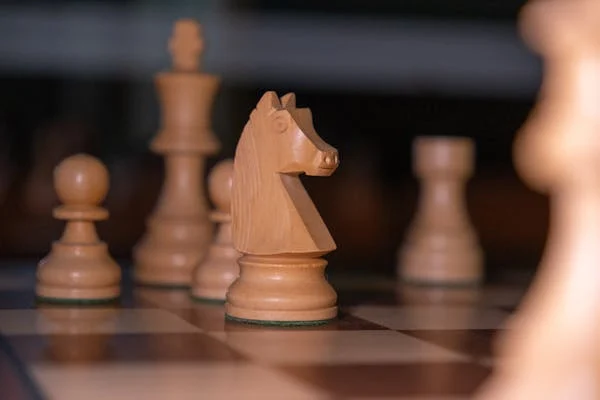
Global School of Chess offers online chess training that’s world-class. It’s perfect for students in Muharraq because it gives them access to international coaches without leaving home. The teachers are FIDE-certified, which means they know their stuff. But more than that, they know how to teach it.
Every student here gets a structured plan. You don’t just log in and play. You learn in a step-by-step way that builds real skill. From understanding how pawns work to mastering grandmaster-level tactics, every step is covered.
Lessons are live and interactive. Students can ask questions, solve puzzles, and play practice games with help from their coach. It’s not a boring video. It’s real learning in real time.
And if your child wants to grow fast, here’s the best part—private coaching is available too. That means focused attention from a coach who helps fix your weaknesses and build your strengths.
There are also bi-weekly tournaments. That means every two weeks, your child gets to test their skills against other students. Win or lose, every game is a chance to learn.
Students from over nine countries and four continents study here. So your child doesn’t just learn chess—they become part of a global chess family.
And yes, the first class is free. You can try it without paying anything. Visit Global School of Chess – Free Trial Class and book your spot.
Bahrain Chess Academy
Bahrain Chess Academy is a well-known name in the local chess scene. It’s based in Manama, which is close to Muharraq. The academy has been around for a few years and does a decent job at organizing local events and tournaments. Some experienced local players offer lessons here, and they cater to both kids and adults.
However, this academy mostly follows the traditional offline model. Classes are held in physical locations. While that can work for some, it means all the same problems we discussed before—less personal attention, lack of structure, and missing out on classes due to travel or timing issues.
Also, many students only attend once a week. That’s not enough if you want to improve fast. Without weekly game analysis and focused homework, learning slows down. The academy does try to keep things organized, but without a strong online platform, students fall behind if they miss even one class.
Unlike Global School of Chess, Bahrain Chess Academy does not offer regular online tournaments or one-on-one progress tracking. And that makes a big difference in how fast a student grows.
Al Najma Club Chess Center
This is another local option for those living in Muharraq or nearby areas. Al Najma is a popular sports club that includes a chess section. They do host a few tournaments every year and invite guest coaches for short workshops. For players who want a community feel and face-to-face games, it’s a good place to start.
But again, this is a part-time chess program. Coaches here often work with many students at once. Lessons tend to be general and not always tailored to each student’s level.
There is no proper online backup. So if you miss a session, you’re out of luck. And while they try to promote chess, the pace of progress is much slower than an online academy with personal guidance.
Compared to Global School of Chess, Al Najma offers less consistency and no regular feedback. And that’s where serious learners can get stuck.
Kingdom Chess Club
This is a growing chess club with a lot of enthusiasm. They sometimes run community events and tournaments in malls or local centers. Their goal is to promote chess among young kids and encourage casual play. That’s a great mission and they do manage to get attention from new learners.
But when it comes to training, Kingdom Chess Club doesn’t yet have a strong structure. There’s no fixed curriculum. There’s no online support or regular follow-up. Most learning happens in small groups with one coach giving a lecture or letting kids play games.
That style may work for fun. But for serious growth, it’s not enough. Kids need structured training, daily puzzles, tournament prep, and analysis of their games. That’s where Global School of Chess really stands out. It gives everything a student needs under one roof—and it does it online, so nothing is ever missed.
Future Minds Chess Academy
Located on the outskirts of Manama, Future Minds Chess Academy has a good reputation among a small group of students. They’re focused on beginners and younger children, and the environment is friendly. Coaches here try to create interest in the game, which is great.

However, their model is still fully offline. Sessions are often short, and class sizes can be big. There’s not much follow-up outside the classroom. If a student wants to do extra practice or ask questions mid-week, they have to wait for the next class.
Unlike Global School of Chess, which gives personal feedback, online homework, game reviews, and access to a global community, Future Minds has very limited offerings.
For parents who want more than just basic exposure to chess—for those who want their child to grow in confidence, strategy, and focus—online training is clearly the better path.
Why Online Chess Training is The Future
It’s not just about saving time. It’s not even about being convenient. Online chess training is the future because it changes how learning happens. It’s smarter, faster, and more scalable. And for businesses and academies looking to grow or stay relevant in education, chess or otherwise, this is the moment to take notice.
Online Chess is a Scalable Model That Empowers Learning
Let’s talk business. Running a physical chess academy means limited space, limited hours, and high overhead costs. You need rooms, boards, staff, and electricity. Every extra student means a squeeze on resources.
Online, those limits disappear.
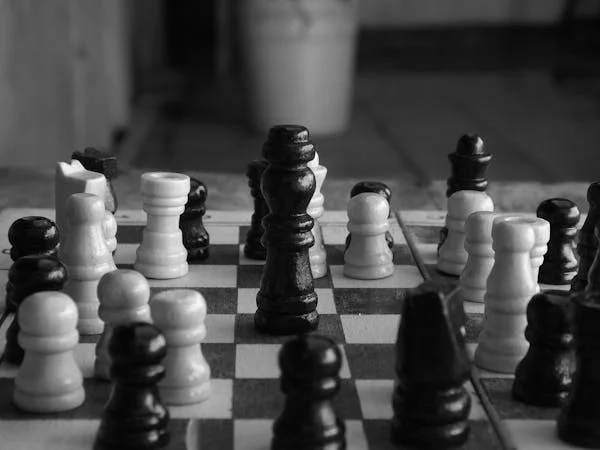
You can coach ten students or a hundred—with the same core infrastructure. Virtual classrooms expand with need. You don’t pay more rent just because more kids join. That’s powerful.
For growing chess academies in places like Muharraq, this means they can go global. Instead of being the best in one city, they can now attract students from many countries. If your coaching is good, why limit it to your zip code?
Action Tip for Chess Businesses: If you’re a local academy, start digitizing your training. Begin with hybrid models—offer both in-person and online. Record your lessons. Build an online curriculum. This will future-proof your academy.
Online Training Makes Data Work for You
In offline classes, it’s hard to track progress. Maybe a student improved. Maybe not. You rely on memory and casual notes.
Online? Every move, every puzzle, every match is stored. You can see the student’s journey. Where they struggle. Where they shine. You don’t just guess—you know.
For coaches and academy owners, this means smarter teaching. You can personalize lessons, build student profiles, and send feedback based on real data.
Action Tip for Businesses: Use platforms that offer analytics. Track time spent on puzzles, game win/loss ratios, and performance trends. Then adjust your lesson plans. Offer monthly progress reports to parents—this builds trust and loyalty.
Online Chess Fits the Way Modern Families Live
Parents today are busy. Kids are booked with school, sports, and more. Fitting a chess class into this tight schedule is hard.
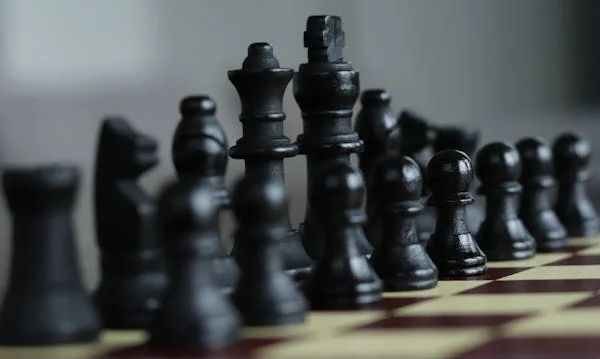
Online classes fit better. A student logs in from home. No commuting. No stress. Just learning.
This flexibility makes families more likely to stay enrolled longer. That’s good for business. Lower dropout rates. Higher satisfaction.
Action Tip for Chess Schools: Offer flexible class times. Let students choose slots that work for them. Create weekend-only plans or evening batches. Make learning fit life, not the other way around.
Online Builds Global Communities That Drive Retention
When a child in Bahrain gets to play a friendly match with someone in Brazil, it’s not just fun—it’s a memory. Online chess training opens the world. Students meet peers, share ideas, and form friendships.
This global bonding means students stay longer. They’re not just learning—they’re belonging.
Action Tip for Coaches: Build a student-only global club. Let them interact safely. Share leaderboards. Celebrate birthdays. Host monthly international blitz nights. Make it more than a class—make it a community.
Online is the Key to Lifelong Learning
Finally, chess is a game that never ends. There’s always more to learn. Online platforms make it easier to offer ongoing training—not just one-time classes.
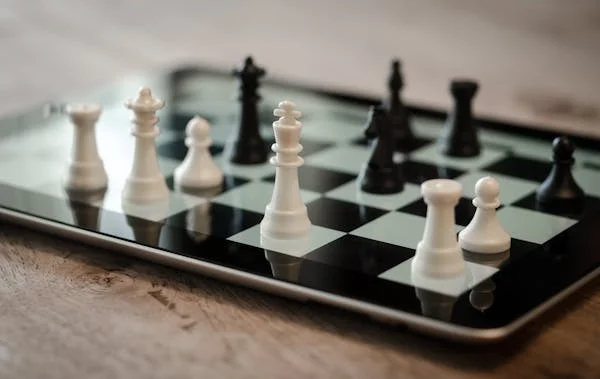
As students grow, they can transition into advanced modules, tournament prep sessions, and even coaching internships. This builds a lifetime learning loop.
Action Tip for Businesses: Create a journey map for students. Show what comes after their current level. Offer packages that bundle multiple levels. Encourage long-term growth.
How Global School of Chess Leads the Online Chess Training Landscape
Now let’s come back to the best in the business—Global School of Chess.
This academy was built from the ground up for online learning. It’s not an offline school trying to add a few online classes. It’s 100% focused on giving students the best experience—right from their first lesson to their biggest win.
At Global School of Chess, everything is planned. Every student gets a custom path. You move at your speed. You get personal attention. And you learn in a way that sticks.
The coaches are all FIDE-certified, and they teach not just games—but mindset. They help students build patience, focus, and confidence. They turn young kids into thinkers. And that’s what makes their students shine—not just on the board, but in life.
The classes are live and fun. Students ask questions. They solve puzzles. They review real games. And every two weeks, they compete in tournaments. That means they practice what they learn—and they get better every time.
There’s even private coaching for those who want to go faster. One-on-one attention helps fix problems quickly and build strong habits.
And it’s not just local. Students from over nine countries across four continents are learning here. That means your child will meet and play against students from around the world. That’s huge.
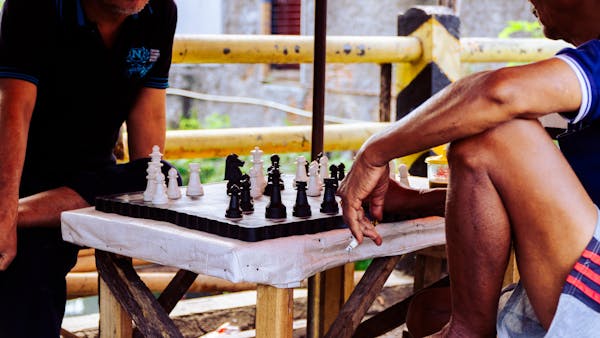
And guess what? You don’t have to take our word for it. You can try a class for free. Just visit Global School of Chess – Free Trial Class and book your spot.
This isn’t just about learning chess. This is about building smart, confident kids. And Global School of Chess is doing it better than anyone else.
Wrapping It Up
Chess is not just about kings and queens. It’s about thinking ahead, solving problems, and building confidence. It’s a tool that shapes young minds into strong, calm, smart individuals.
In Muharraq, Bahrain, there are many places where you can begin your chess journey. But if you’re looking for a place where learning is clear, personal, structured, and built for the world we live in today, there’s one name that stands out—Global School of Chess.

